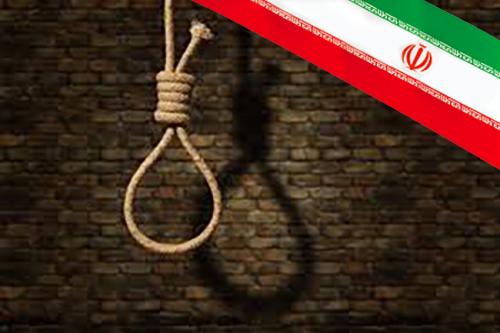03 May 2017 :
Seventy first session
Promotion and protection of human rights: human rights questions, including alternative approaches for improving the effective enjoyment of human rights and fundamental freedoms
Resolution 71/187
Adopted in New York on 19 December 2016 with 117 votes in favor, 40 against and 31 abstentions (5 absent)
Moratorium on the use of the death penalty
The General Assembly,Guided by the purposes and principles contained in the Charter of the United Nations,
Reaffirming the Universal Declaration of Human Rights,the International Covenant on Civil and Political Rights and the Convention on the Rights of the Child,
Recalling the Second Optional Protocol to the International Covenant on Civil and Political Rights, aiming at the abolition of the death penalty, and in this regard welcoming the increasing number of accessions to and ratifications of the Second Optional Protocol,
Reaffirming its resolutions 62/149 of 18 December 2007, 63/168 of 18 December 2008, 65/206 of 21 December 2010, 67/176 of 20 December 2012 and 69/186 of 18 December 2014 on the question of a moratorium on the use of the death penalty, in which the General Assembly called upon States that still maintain the death penalty to establish a moratorium on executions with a view to abolishing it,
Welcoming all relevant decisions and resolutions of the Human Rights Council,
Mindful that any miscarriage or failure of justice in the implementation of the death penalty is irreversible and irreparable,
Convinced that a moratorium on the use of the death penalty contributes to respect for human dignity and to the enhancement and progressive development of human rights, and considering that there is no conclusive evidence of the deterrent value of the death penalty,
Noting ongoing local and national debates and regional initiatives on the death penalty, as well as the readiness of an increasing number of Member States to make available to the public information on the use of the death penalty, and also, in this regard, the decision by the Human Rights Council in its resolution 26/2 of 26 June 2014[5] to convene biennial high-level panel discussions in order to further exchange views on the question of the death penalty,
Recognizing the role of national human rights institutions in contributing to ongoing local and national debates and regional initiatives on the death penalty,
Welcoming the considerable movement towards the abolition of the death penalty globally and the fact that many States are applying a moratorium, including long-standing moratoriums, either in law or in practice, on the use of the death penalty,
Emphasizing the need to ensure that persons facing the death penalty are treated with humanity and with respect for their inherent dignity and in compliance with their rights under international human rights law,
Noting the technical cooperation among Member States, as well as the role of relevant United Nations entities and human rights mechanisms, in supporting State efforts to establish moratoriums on the death penalty,
Bearing in mind the work of special procedures mandate holders who have addressed human rights issues related to the death penalty within the framework of their respective mandates,
- Reaffirms the sovereign right of all countries to develop their own legal systems, including determining appropriate legal penalties, in accordance with their international law obligations;
- Expresses its deep concern about the continued application of the death penalty;
- Welcomes the report of the Secretary-General on the implementation of resolution 69/186[6] and the recommendations contained therein;
- Also welcomes the steps taken by some States to reduce the number of offences for which the death penalty may be imposed, as well as steps taken to limit its application;
- Further welcomes initiatives and political leadership encouraging national discussions and debates on the possibility of moving away from capital punishment through domestic decision-making;
- Welcomes the decisions made by an increasing number of States from all regions, at all levels of government, to apply a moratorium on executions, followed in many cases by the abolition of the death penalty;
- Calls upon all States:
(a) To respect international standards that provide safeguards guaranteeing protection of the rights of those facing the death penalty, in particular the minimum standards, as set out in the annex to Economic and Social Council resolution 1984/50 of 25 May 1984, as well as to provide the Secretary-General with information in this regard;
(b) To comply with their obligations under article 36 of the 1963 Vienna Convention on Consular Relations, particularly the right to receive information on consular assistance;
(c) To make available relevant information, disaggregated by sex, age, and race, as applicable, and other applicable criteria, with regard to their use of the death penalty, inter alia, the number of persons sentenced to death, the number of persons on death row and the number of executions carried out, the number of death sentences reversed or commuted on appeal and information on any scheduled execution, which can contribute to possible informed and transparent national and international debates, including on the obligations of States pertaining to the use of the death penalty;
(d) To progressively restrict the use of the death penalty and not to impose capital punishment for offences committed by persons below 18 years of age, on pregnant women or on persons with mental or intellectual disabilities;
(e) To reduce the number of offences for which the death penalty may be imposed;
(f) To ensure that those facing the death penalty can exercise their right to apply for pardon or commutation of their death sentence by ensuring that clemency procedures are fair and transparent and that prompt information is provided at all stages of the process;
(g) To establish a moratorium on executions with a view to abolishing the death penalty;
- Calls upon States which have abolished the death penalty not to reintroduce it, and encourages them to share their experience in this regard;
- Encourages States which have a moratorium to maintain it and to share their experience in this regard;
- Calls upon States that have not yet done so to consider acceding to or ratifying the Second Optional Protocol to the International Covenant on Civil and Political Rights, aiming at the abolition of the death penalty;4
- Requests the Secretary-General to report to the General Assembly at its seventy-third session on the implementation of the present resolution;








